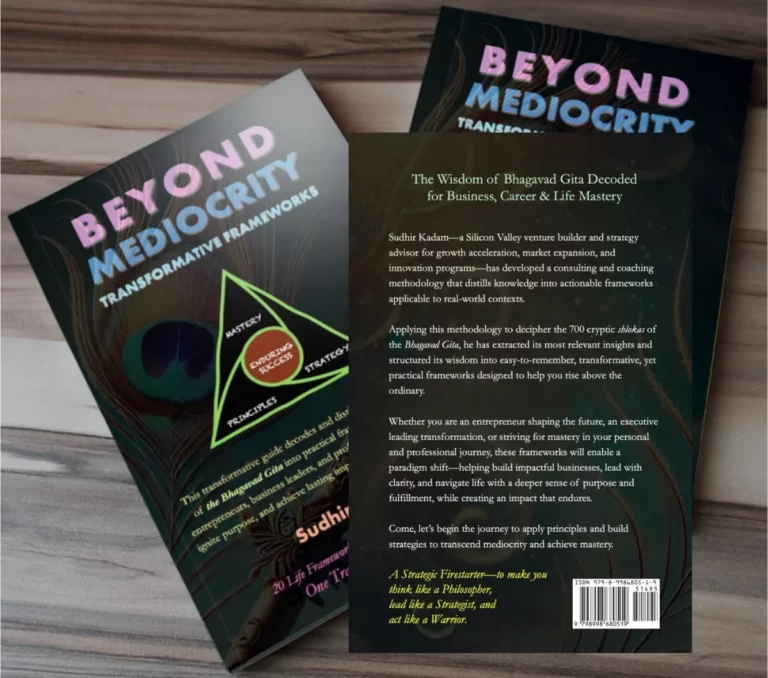Carving your own path: is resilience the key to success?
It's not in the discovery of new lands, but in seeing with new eyes that we truly find ourselves. When you read Angela Frazier's book, "Rising from the Abyss: Unveiling God's Plan", you will discover a new perspective on the power of resilience and how it helps us carving our own path to success. What is the unique clue found in Angela's book?

It is not in the stars to hold our destiny but in ourselves.
William Shakespeare
“How many times have I failed?” It’s something we all wonder about. But is this really the right question to ask yourself? Most successful people failed at least 12 times. Failure is life’s unfair advantage and more than often serves as a priceless learning experience. The number of times you’ve failed isn’t as important as what you learned from each failure and how you use that knowledge on your path to success.
Many successful people have experienced numerous failures before achieving their goals. They often ask themselves: ” What lessons have I learned along the way?” and “How far do I want to go?”
Is resilience the key to success?
When you reflect on your challenges, consider what each failure has taught you and use those lessons to fuel your next steps. In my own experience, lessons are more valuable than wins and each setback was nothing but an opportunity to develop the resilience that moved me forward against all odds.
Resilience involves managing emotions effectively. By navigating through difficult times, we develop better emotional awareness and regulation, enhancing our interactions and decision-making. When life throws challenges our way, resilience enables us to bounce back, learn and grow from these experiences. This journey of overcoming obstacles and adapting to change is where true self-actualisation occurs, acting as the compass for our success.
“It is not in the stars to hold our destiny but in ourselves” – honestly, William Shakespeare’s quote hits differently every time I read it, every time I fail. It’s a powerful reminder that we’re the architects of our own lives, no matter the external chaos. Resilience helps you bounce back from failures and setbacks. Each time you recover, you are learning and growing from the experience and move closer to self-actualization. So, why not explore how you can take control of your own path to success and keep your spirit young and vibrant along the way?
Self-actualisation sounds like one of those high-brow concepts, but it’s really about what triggers your Inner North Star! The realisation of your full potential and capabilities, self-actualisation is the highest level of psychological development. It begins with envisioning your ideal self and setting goals that reflect this vision.
Once you have a clear vision, self-actualisation helps ensure that your actions and decisions align with your long-term goals and values. It is this alignment that generates the motivation and drive you need to keep moving. It gives you direction and purpose, guiding your efforts towards meaningful achievements, getting you one step closer to who you are destined to be.
I remember that back in 2014 I went back to Japan to write a book about purpose and that trip completely changed the way I see everything. Finding and pursuing your reason for being, your Ikigai, is about unlearning what you know and discovering what contributes to a sense of joy. Living young at heart isn’t about denying your birthdays; it’s about keeping your inner child alive and kicking!
How can we nurture our zest for life no matter the number of candles on our birthday cake? Remember when everything was fascinating as a kid? Channel that! Dive into new hobbies, ask yourself better questions and open yourself to new perspectives. Staying curious helps keep the mind sharp and ready for life’s surprises. Play isn’t just a kid’s game. Want to feel alive? Dance in the rain, start that painting, or write that book you had inside for decades. These decisions aren’t just fun—they’re essential for a happy heart and carving your own path to success.
During this trip to Japan I have decided to stop chasing goals and allow my most beautiful dreams to come home. What is the big dream that means something to you? Start owning every bit of your journey and reminding yourself that you control your path and reject the idea that life is something that just happens to you. Instead, you make it your own.
Back to England, Shakespeare’s quote made total sense: “destiny lies within ourselves”. For hundreds of years he challenged us to reject the notion that our fate is predetermined by external forces and we all have the chance to take a new approach, start shaping our unique paths through conscious choices. Shakespeare might as well have been a life coach because taking control of your destiny is a major move.
After decades of delivering without fail my TO DO lists, I began to ask myself: What’s on your TO BE list? So I started to sketch out a new type of list – the TO BE list across all life areas—work, relationships, personal growth- and for the first time I could see a clear direction and a sense of alignment.
Change is the only constant in our brief lives and I consider it to be the source to perpetuate our best energy. Meet change with enthusiasm and flexibility—it’s your secret weapon for staying dynamically young at heart. Take a beat to think about where you’re heading and celebrate the victories (big or small).
Journaling and self-reflection are the two facets of the same coin: self-awareness. Keep moving and self tuning within. We are conditioned to bury our dreams alive, long before they reach others’ heart. Take the pulse of your progress and dreams. Are they still at work? Dreams don’t work unless you play. Break those big dreams down into small steps and start stepping up!
Carve your own path to walk into your own light
Your unique story is your superpower. Understand what sets you apart and let it shine in a total stranger’s dark hour. Never dim your light. Shakespeare really knew his truth. Is your life’s direction controlled by external circumstances or shaped by your actions and the youthful, adventurous spirit you bring to your daily life?
I am always in the look out for people who keep pushing toward their unique potential, who cherish their unique story and make every moment count. It’s not in the discovery of new lands, but in seeing with new eyes that we truly find ourselves. Keep crafting your story; after all, it’s yours to tell. Sharing your story, changes your story and the lives of those you inspire.
When I first came across Angela Frazier‘s remarkable book, “Rising from the Abyss: Unveiling God’s Plan”, I had a new perspective on the power of resilience and how it helps us create our own path to success. What is the unique clue I found in Angela’s book? It really helped me connect the dots between resilience and self-acceptance.
Resilience is more than just a buzzword; it’s a critical trait that helps us understand ourselves better and guides us towards self-actualisation. When life throws challenges our way, resilience enables us to bounce back, learn and grow from these experiences. When you overcome obstacles, you adapt to change and that is opening the gates to self-awareness and self-actualization and resilience is acting as the compass for our success.
In more than one way, Angela teaches the role of resilience in self-acceptance and here are my notes after reading her book. Resilience involves facing adversity with a mindset that views challenges as opportunities for growth. Each time we encounter and overcome difficulties, we gain deeper insights into our strengths, weaknesses and values. How does resilience nurture self-acceptance?
Revealing True Strengths and Weaknesses
– Challenges expose areas where we excel and areas needing improvement. Resilience helps us acknowledge and leverage our strengths while addressing our weaknesses.
– Adversity forces us to reassess what truly matters. This reflection clarifies our core values and helps us prioritise goals that align with our authentic selves.
– Resilience involves managing emotions effectively. By navigating through difficult times, we develop better emotional awareness and regulation, enhancing our interactions and decision-making.
Resilience: the compass for success
What is the connection between resilience and self-acceptance? Resilience and self-acceptance are deeply interconnected, each reinforcing the other in a cycle wisdom and alignment. Understanding this relationship can be transformative, as it helps you navigate life’s challenges with a stronger sense of self and a greater capacity for re-imagining the next step.
Understanding resilience and self-acceptance
If resilience is the ability to bounce back from adversity, trauma or stress, it involves adapting well in the face of difficult circumstances and maintaining psychological well-being despite hardships. Resilience is not an innate trait but a skill that can be developed over time through experience, mindset and belief.
Self-acceptance is the acknowledgment and embracing of all aspects of oneself, including strengths, weaknesses, successes, and failures. It involves a realistic appraisal of oneself without excessive self-criticism or idealization. Self-acceptance is fundamental to self-esteem and mental health, as it allows individuals to recognize their inherent worth.
What is the symbiotic relationship between resilience and self-acceptance?
Building resilience through self-acceptance
Embracing Imperfection: Self-acceptance involves recognizing and accepting your flaws and imperfections. This realistic self-view reduces the fear of failure and the anxiety of not being perfect, making it easier to take risks and face challenges resiliently.
Reducing self-criticism: When you accept yourself, you are less likely to engage in harsh self-criticism and negative self-talk. This compassionate self-view provides a supportive internal dialogue that is crucial during difficult times, enhancing resilience.
Strengthening Self-Acceptance Through Resilience
Learning from adversity: Resilience helps individuals learn from their experiences, including failures and setbacks. This learning process fosters self-awareness and self-acceptance, as you come to understand that your worth is not defined by your mistakes.
Empowerment through overcoming challenges: Each time you successfully navigates adversity, your confidence and self-acceptance grow. You learn to trust your abilities and accept yourself as capable and resilient member of society.
Self-Compassion:
Treat yourself with the same kindness and understanding you would offer a friend. When facing difficulties, remind yourself that it’s okay to struggle and that everyone experiences setbacks.
Identify and leverage your strengths in various aspects of your life. Acknowledging and utilizing your strengths enhances self-acceptance and builds resilience.
Resilience as a healthy coping strategy
Develop healthy coping mechanisms such as exercise, journaling, or engaging in hobbies. These activities can help you manage stress and maintain a positive outlook.
Angela Frazier’s book, “Rising from the Abyss: Unveiling God’s Plan”, makes the connection between resilience and self-acceptance a powerful dynamic for mental well-being. Resilience helps you navigate and learn from life’s challenges, enabling greater self-acceptance.

In turn, self-acceptance provides the foundation of self-compassion and realistic self-view that are building your resilience. It is fair to say that Angela’s book is giving us the chance to nurture both resilience and self-acceptance and carve your own path with a robust sense of self while navigating life’s adversities with greater strength and confidence.
Do you want to share your story and inspire our readers ? Know that YOUR EXPERTISE is paving the way for a brighter, happier future.




